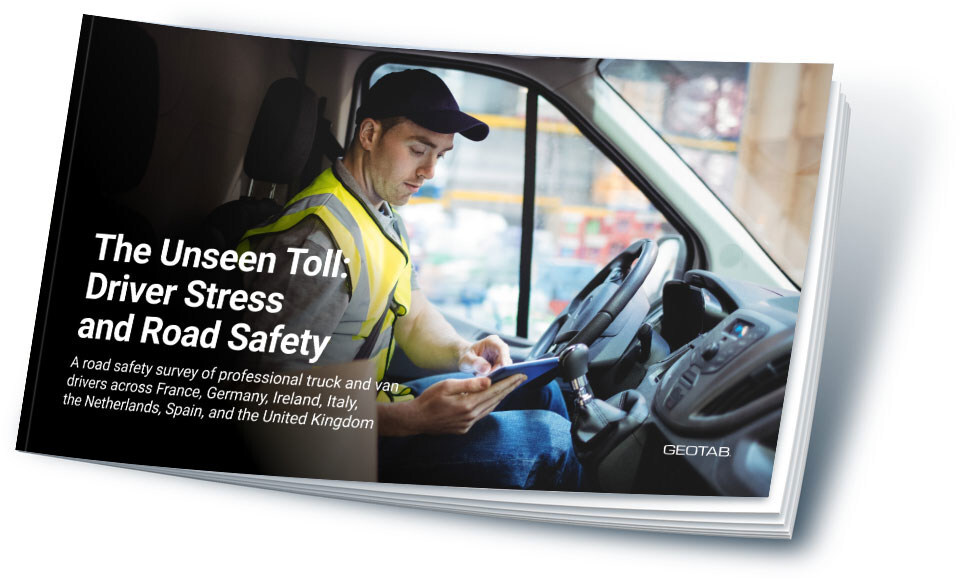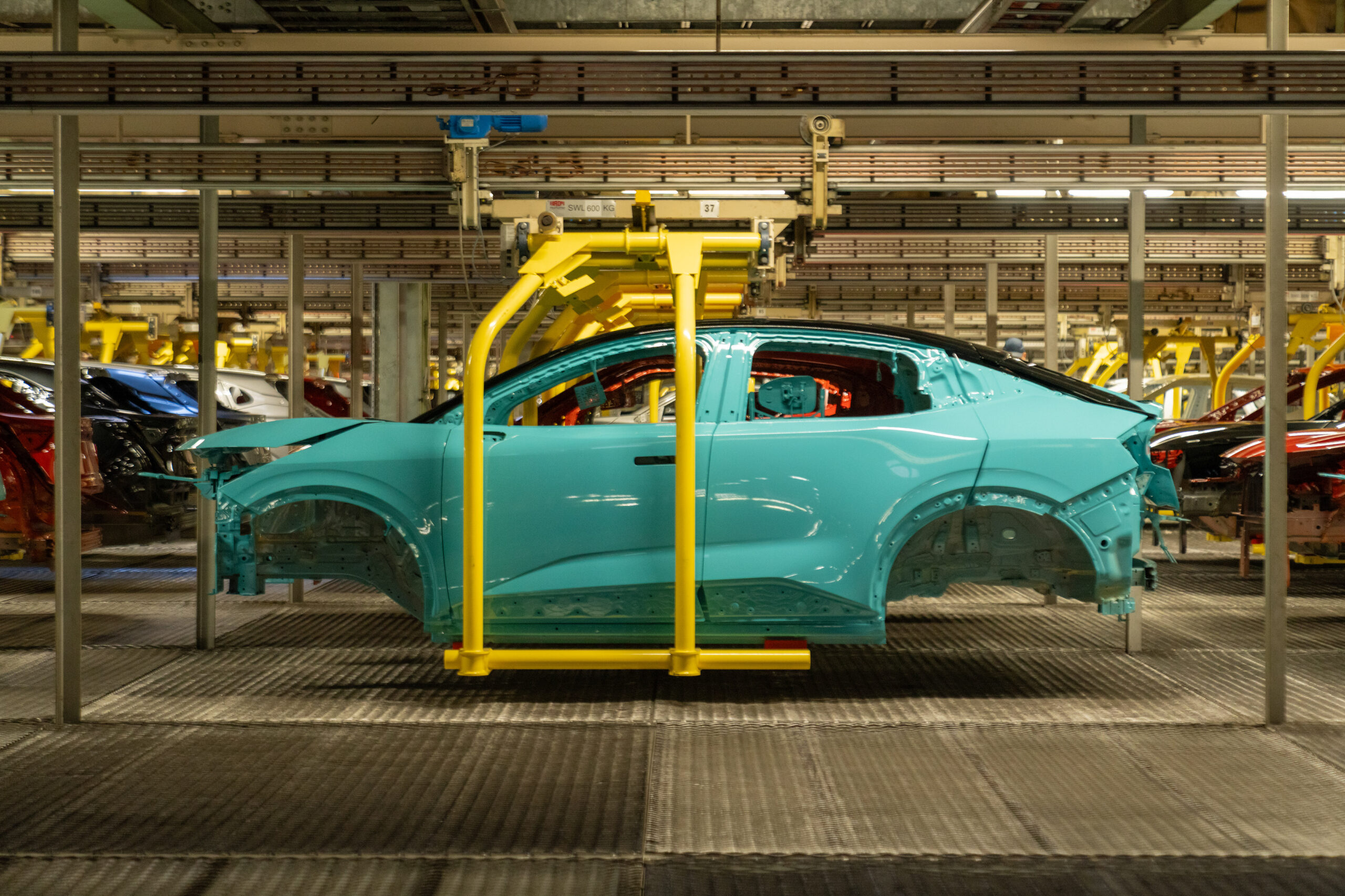
Truck drivers spend hours alone in a cab. Often, they are required to stay overnight in that cab on long-haul journeys and the feeling of isolation in an industry that relies internal resilience for a job that demands a fairly solitary existence, has inevitable consequences.
Men’s Health Week 2025 takes place in the UK from 9-15 June. It has been organised by the Men’s Health Forum to raise awareness of preventable health issues and encourages men to seek help for health problems, including mental health. This year, it aims to encourage conversations about mental health within organisations and businesses.
The event will give truck drivers ample opportunity to find out how they can access services to enable better mental health.
Trucker and YouTuber Harling the Trucker is a key advocate for providing more resources for drivers who are feeling isolated.
“Community is important for everybody,” he said. “It’s important for everyone to have their tribe. People want big friendship groups, other people want smaller friendship groups, but this is about building relationships and friendships. Within the trucking fraternity the big issue is, of course, is that we’re in cabs, we’re away, we are on our own. It’s very difficult.
“I describe it as a ‘great job, terrible lifestyle’. We have many drivers who are ill through mental health issues, through physical disablement and through obesity and diabetes. It’s a crazy situation that we are in.”
According to Matthew Bellamy, Managing Director of SNAP, a company that provides digital solutions for the transport sector, the issue could have a devastating impact on the industry.
“There is a 20% high rate of suicide and depression for drivers above the national average,” he explained. “We continue to provide content and resources that drivers can access as well as a social media community where drivers can engage and connect with each other to try to help people overcome these challenges. We would love to see the stats decline over the coming years.”

A recent study by fleet telematics and tracking management company Geotab focused on drivers’ mental health and its results revealed a significant problem with regards to driver mental health.
Geotab commissioned Opinion Matters to survey 3,501 professional lorry and van drivers (aged 18+) across the United Kingdom, France, Netherlands, Ireland, Italy, Germany and Spain to examine the state of driver stress, job satisfaction, perceived road safety, and technology adoption in the commercial vehicle sector.
The survey titled: The Unseen Toll: Driver Stress and Road Safety contained a number of responses where commercial vehicle drivers are seemingly suffering in silence. It showed van and truck drivers have stress levels that are compromising both their mental health and road safety.
It revealed the vast majority (91%) of Europe’s commercial vehicle drivers say that work-related stress has a negative impact on their driving, while 70% say that stress is a contributing factor to increased dangers on the road.
In the study almost all of the drivers (95%) consider the risk of accidents to have increased over the last five years, with 61% reporting this increase as ‘very’ or ‘quite significant’.
Significant work pressures appear to contribute to stress. Half of the drivers surveyed (50% average) admitted feeling the need to regularly break speed limits to complete jobs on time. Furthermore, nearly two-thirds (64% average) stated that excessive traffic or roadworks make completing their jobs difficult.
Against the backdrop of increased work pressures, many drivers feel unsupported by their employers. Over half (55%) feel uncomfortable approaching their employer for support with stress and other mental health concerns. This is also reflected in over a third (37%) reporting their employer offering only a low or non-existent level of support.
The effects of these pressures are clear: almost half of respondents (47%) have considered quitting their jobs in the past 12 months.
Edward Kulperger, Senior Vice President, Geotab EMEA, said, “These results are a stark reminder of the pressures faced by commercial drivers, impacting road safety for everyone. The economy relies heavily on commercial vehicle drivers, yet stress is pushing them out of the industry and putting road safety at risk,
“Drivers face significant work-related stress, observe dangerous behaviours daily, and are often pressured by schedules, yet many feel unsupported or uncomfortable seeking help. With almost half thinking about quitting – and that amidst a driver shortage – it is crucial for employers to provide better mental health support now.”
Previous studies have highlighted an ongoing problem, with HGV drivers often spending upwards of 10 hours on the road in a single day. These long hours can lead to physical exhaustion and mental strain, with drivers missing out on critical family time and regular day-to-day social interactions. Fatigue compounds this, making it hard to fully rest or recover before the next shift.

In what is regarded as a male-dominated industry – only 1% of drivers in the UK are women – where drivers are expected to be ‘tough’, the Geotab survey underscores the need for action, not only to stave off future driver shortages, but also to ensure that stress is not compromising road safety.
Navigating UK roads often means dealing with congested traffic, road rage, and unpredictable driving conditions. This environment demands constant vigilance and calm, but the stress of road rage and gridlock can weigh heavily on drivers, making each journey mentally taxing.
But there are solutions to help build community within the industry and support drivers. Looking forward, over two thirds (69%) of drivers who responded in the Geotab study say they support adopting technology to enhance driving performance.
Kulperger added, “As an industry, we must prioritise driver wellbeing, employing data and technology not just for efficiency, but to proactively create safer, less stressful environments. A real commitment is needed to keep roads safe and supply chains moving.
“Addressing these challenges is crucial for driver wellbeing and fleet efficiency. Prioritising safety helps reduce accidents, lowering insurance, repair, and downtime costs.”
Kulperger called for implementation of robust safety programmes, supported by telematics data and cutting-edge AI models. By leveraging the technology drivers are willing to adopt fleets managers can pinpoint risks, coaching safer behaviours, and monitor wellbeing indicators which combine to enhance safety, productivity, and achieve significant cost savings.
Managing Director of logistics company Fagan & Walley, Dan Fagan, said, “It’s often the simple acts of acknowledgment, support, and open communication that can build a sense of community that makes drivers feel safe and valued in their work environment.
“Ultimately, supporting mental health in the logistics industry is a shared responsibility. It requires collaboration from employers, drivers, mental health organisations, and society as a whole.”
Alexa Knight, Director of England at Mental Health Foundation, said, “Long hours on the road, limited opportunities for social interaction, and the pressures of the job can take a toll on HGV drivers’ mental health. A strong sense of community is a vital protective factor, as highlighted during our Mental Health Awareness Week. “Truck parks provide essential spaces for drivers to connect and unwind, and maintaining these areas is crucial. Equally important is ensuring drivers have access to mental health support, so those who keep the country moving receive the care they deserve.”


